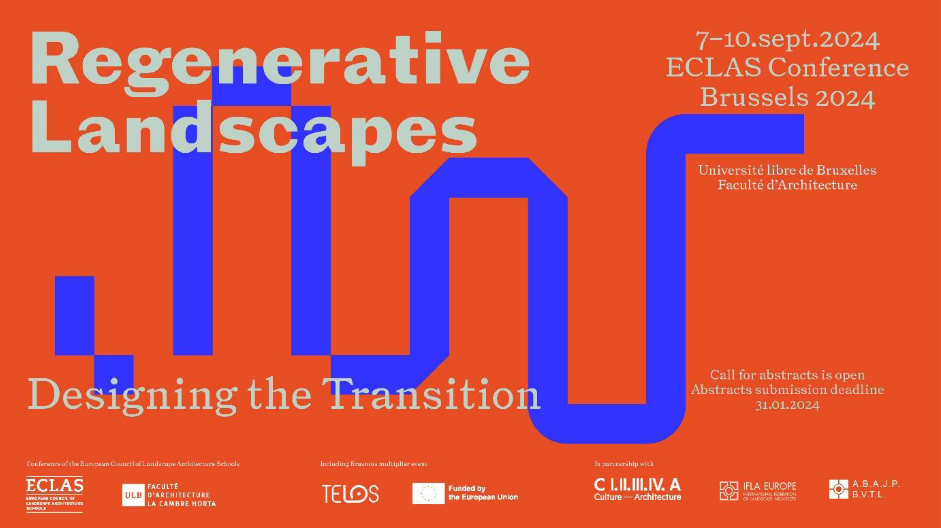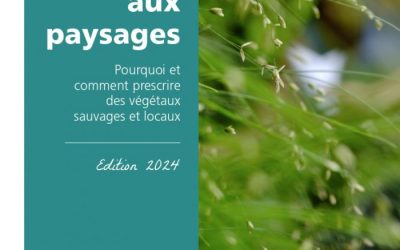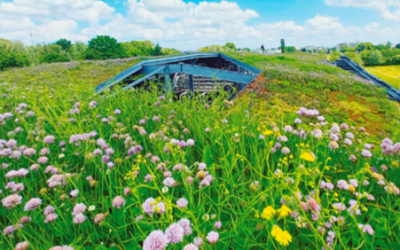Regenerative Landscapes. Designing the Transition
7-10 sept. 2024 ECLAS Conference Brussels 2024
Call for Abstracts
Call for abstracts open now. Submissions invited until January 31, 2024.
>>> Download call as PDF – or read further below on this page
We receive proposals via Oxford Abstracts. Make sure you register with your institutional e-mail.
- Submit your abstract online
- abstract length is 300 words plus 50 words per cross-cutting question
- We will publish a book of abstracts and selected short papers via the publishing house of the Université Libre de Bruxelles. This will be part of the TELOS Landscape Economy publication series.
Conference details:
- Doctoral Colloquium & ERASMUS Intensive Programme: Saturday September 7 – 13, 2024, more information
- Conference Excursion Day: Sunday September 8, 2024 all day
- Conference: Monday – Tuesday September 9 – 10, 2024, ECLAS General Assembly: September 10
- Venues: Université Libre de Bruxelles (ULB), Faculté d’Architecture La Cambre Horta & CIVA Brussels, Belgium. CIVA Brussels is the Centre for Information, Documentation and Exhibitions on the city, architecture, landscape and urban planning in the Brussels-Capital Region.
- The conference includes a multiplier event of the Landscape Economy ERASMUS project (TELOS)
- There will be an online option for those who need
Scientific Committee
This is a collaboration of the ECLAS Executive Committee, the TELOS ERASMUS Team and team members of ULB, Faculty of Architecture.
Regenerative Landscapes. Designing the Transition
ECLAS 2024 will discuss the capacity of landscape as an approach and a method for system design and innovation in a climate change scenario. Thinking and acting with a landscape perspective opens up opportunities for innovation. This design potential evolves at the boundaries of sectors and interest groups, and seemingly competing values and goals. Unlocking this transformative capacity is more urgent than ever. Landscape can act both as a conceptual framework and as a medium for activating this capacity. The ‘why?’ is clear: We are operating beyond the capacity of our planet. Six out of nine planetary boundaries have been crossed (Rockström et al, 2023). We need to move back into the safe operating space.
We invite you to share teaching, research or practice perspectives of past, present and future regenerative landscapes. The deadline for submissions is January 31, 2024.
Cross-cutting questions
All contributions should address the following cross-cutting questions. Depending on the nature of your theme, not all questions might be addressed at the same level of depth.
Regenerative Landscapes: How might we define them? Please present and discuss the theories and discourses that are shaping your understanding of this concept.
Regenerative Landscapes: How do they work? Here we would like to hear about examples of regenerative systems and models. These can be existing practices but also studio work, prototypes, or research.
Regenerative Landscapes: Why do they work? How about evidence: Why is the model you are presenting regenerative? What is supposed to be regenerated? How would we know? Which evaluation approach is needed? You can also share your theoretical thoughts on this.




